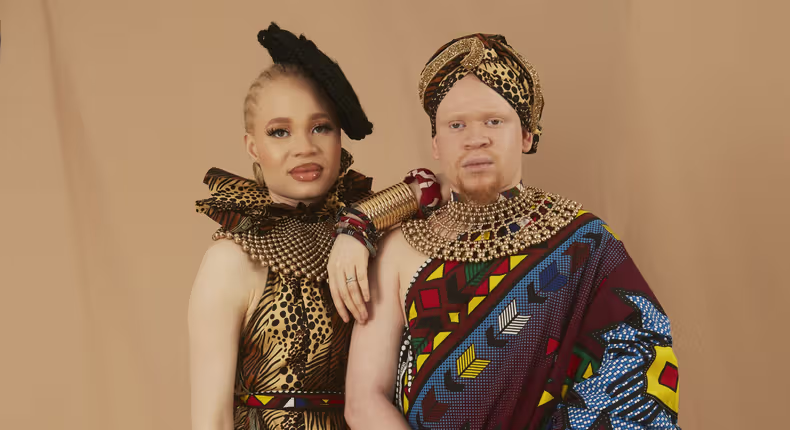People living with albinism in Nigeria encounter profound challenges stemming from pervasive misconceptions and deeply rooted prejudices. These challenges manifest in various forms of discrimination that significantly impact their daily lives:
1. **Social stigma and isolation**: Individuals with albinism often face social stigma due to their distinct appearance. They are subjected to curiosity, fear, and misunderstanding, which can lead to social isolation. Ostracism from community activities and social gatherings further exacerbates feelings of difference and impacts their self-esteem and mental health.
2. **Bullying and harassment**: Children and adults with albinism frequently endure bullying and harassment in schools and communities. They are targeted with derogatory names and ridiculed for their appearance, sometimes escalating to physical violence. This hostile environment impedes their educational and social development, creating barriers to participation and integration.
3. **Discrimination in education and employment**: Educational institutions and workplaces often fail to provide necessary accommodations for individuals with albinism, such as support for their visual impairments. Discriminatory practices during the hiring process and in professional settings result in limited job opportunities and hinder career advancement, contributing to higher rates of unemployment and underemployment.
4. **Health disparities and inadequate medical care**: Access to appropriate medical care is a challenge for people with albinism, compounded by a lack of awareness among healthcare providers. This neglect can lead to preventable health complications, particularly related to visual impairments and skin conditions like skin cancer due to sun exposure without adequate protection.
5. **Superstitions and harmful beliefs**: Harmful superstitions and myths about albinism persist in some cultures, portraying individuals with the condition as possessing magical powers or having body parts that bring good luck. These beliefs have fueled violent attacks, mutilations, and killings of people with albinism, particularly in parts of Africa, perpetuating a cycle of fear and danger.
6. **Lack of representation and advocacy**: The underrepresentation of people with albinism in media, politics, and advocacy roles limits their visibility and influence. This lack of representation perpetuates stereotypes and hinders efforts to enact meaningful policy changes that could improve their rights and quality of life.
7. **Legal and institutional barriers**: Inadequate legal protections and weak enforcement contribute to the vulnerability of individuals with albinism. Discrimination and violence against them often go unchecked, leaving them without adequate recourse or justice.
Addressing these challenges requires comprehensive efforts:
– **Public awareness and education**: Increasing awareness about albinism to dispel myths and misconceptions.
– **Inclusive policies**: Implementing inclusive policies in schools and workplaces to support individuals with albinism.
– **Legal protections**: Strengthening legal protections and enforcement mechanisms to safeguard their rights.
– **Advocacy and representation**: Promoting advocacy efforts and increasing representation to amplify their voices and push for societal change.
By taking these steps, society can create a more inclusive and supportive environment where individuals with albinism can live with dignity, free from discrimination and fear.
